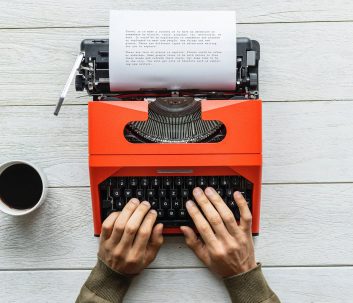
Note to readers Read the future
This short note on editorial philosophy and plan places Together key points that guide, and will direct, The Economic Times, India’s top business paper by readership, together with additional Times Group books, as they continue their efforts to be even more relevant and engaging.
Information is plentiful across multiple platforms. There’s Now widespread recognition that cognitive capacities are negatively affected by a deluge of information.
In parallel, there’s a Enormous demand for information readers Value most — details, investigations, data that (a) have passed several tests on accuracy and quality, and (b) focus aggressively on explaining the current and comprehension how the future will evolve.
Given these broad realities of the data marketplace, a Quality paper that keeps readers’ interests front and center in its own editorial planning must, therefore, do two things. To begin with, it has to knowingly and always avoid adding to this information glut. Secondly, it has to focus its editorial tools on reporting and analysing the information most valued by its readers.
A particularly critical point here is a newspaper’s treatment Of the past, of historical events, anniversaries connected to historic figures. Anniversaries, by way of example, tend to produce a flood of editorial matter appearing back, chock-a-block together with dates, places, events, personalities which are history.
But this is hardly applicable. For three reasons: First, Info platforms not geared to information are numerous. Anyone interested in understanding about background has scores of options — she does not require news programs to retell those very same stories.
Second, with viewers prepared to tune out what’s not right Relevant or useful to them, great masses of history-themed coverage include little to the paper’s value.
Third, after from the second, consumers of information are Interested in issues which are shaping or may shape their own lives, in addition to problems that inform or entertain their existing and future-geared heads. What are these difficulties? Tech, entrepreneurship, careers, financial markets, the environment debate, sports, entertainment, style, and current debates on identity politics, as an instance, diversity and inclusion.
Problems like these will probably be overriding in editorial planning Since there’s no value added for information consumers if a paper simply retailors stories of the past that aren’t relatable.
The chronological arrangement of coverage must start in the present. The past will be considered important if, and only if, some thing in the present or a potential future outcome could be better explained by reference to something in history.
The editorial doctrine of ET recognises that information Consumers live in the current and dream or think or worry about the future. That is the guiding principle of the editorial coverage.
This short note on editorial philosophy and plan places Together key points that guide, and will direct, The Economic Times, India’s top business paper by readership, together with additional Times Group books, as they continue their efforts to be even more relevant and engaging.
Information is plentiful across multiple platforms. There’s Now widespread recognition that cognitive capacities are negatively affected by a deluge of information.
In parallel, there’s a Enormous demand for information readers Value most — details, investigations, data that (a) have passed several tests on accuracy and quality, and (b) focus aggressively on explaining the current and comprehension how the future will evolve.
Given these broad realities of the data marketplace, a Quality paper that keeps readers’ interests front and center in its own editorial planning must, therefore, do two things. To begin with, it has to knowingly and always avoid adding to this information glut. Secondly, it has to focus its editorial tools on reporting and analysing the information most valued by its readers.
A particularly critical point here is a newspaper’s treatment Of the past, of historical events, anniversaries connected to historic figures. Anniversaries, by way of example, tend to produce a flood of editorial matter appearing back, chock-a-block together with dates, places, events, personalities which are history.
But this is hardly applicable. For three reasons: First, Info platforms not geared to information are numerous. Anyone interested in understanding about background has scores of options — she does not require news programs to retell those very same stories.
Second, with viewers prepared to tune out what’s not right Relevant or useful to them, great masses of history-themed coverage include little to the paper’s value.
Third, after from the second, consumers of information are Interested in issues which are shaping or may shape their own lives, in addition to problems that inform or entertain their existing and future-geared heads. What are these difficulties? Tech, entrepreneurship, careers, financial markets, the environment debate, sports, entertainment, style, and current debates on identity politics, as an instance, diversity and inclusion.
Problems like these will probably be overriding in editorial planning Since there’s no value added for information consumers if a paper simply retailors stories of the past that aren’t relatable.
The chronological arrangement of coverage must start in the present. The past will be considered important if, and only if, some thing in the present or a potential future outcome could be better explained by reference to something in history.
The editorial doctrine of ET recognises that information Consumers live in the current and dream or think or worry about the future. That is the guiding principle of the editorial coverage.
This short note on editorial philosophy and plan places Together key points that guide, and will direct, The Economic Times, India’s top business paper by readership, together with additional Times Group books, as they continue their efforts to be even more relevant and engaging.
Information is plentiful across multiple platforms. There’s Now widespread recognition that cognitive capacities are negatively affected by a deluge of information.
In parallel, there’s a Enormous demand for information readers Value most — details, investigations, data that (a) have passed several tests on accuracy and quality, and (b) focus aggressively on explaining the current and comprehension how the future will evolve.
Given these broad realities of the data marketplace, a Quality paper that keeps readers’ interests front and center in its own editorial planning must, therefore, do two things. To begin with, it has to knowingly and always avoid adding to this information glut. Secondly, it has to focus its editorial tools on reporting and analysing the information most valued by its readers.
A particularly critical point here is a newspaper’s treatment Of the past, of historical events, anniversaries connected to historic figures. Anniversaries, by way of example, tend to produce a flood of editorial matter appearing back, chock-a-block together with dates, places, events, personalities which are history.
But this is hardly applicable. For three reasons: First, Info platforms not geared to information are numerous. Anyone interested in understanding about background has scores of options — she does not require news programs to retell those very same stories.
Second, with viewers prepared to tune out what’s not right Relevant or useful to them, great masses of history-themed coverage include little to the paper’s value.
Third, after from the second, consumers of information are Interested in issues which are shaping or may shape their own lives, in addition to problems that inform or entertain their existing and future-geared heads. What are these difficulties? Tech, entrepreneurship, careers, financial markets, the environment debate, sports, entertainment, style, and current debates on identity politics, as an instance, diversity and inclusion.
Problems like these will probably be overriding in editorial planning Since there’s no value added for information consumers if a paper simply retailors stories of the past that aren’t relatable.
The chronological arrangement of coverage must start in the present. The past will be considered important if, and only if, some thing in the present or a potential future outcome could be better explained by reference to something in history.
The editorial doctrine of ET recognises that information Consumers live in the current and dream or think or worry about the future. That is the guiding principle of the editorial coverage.




